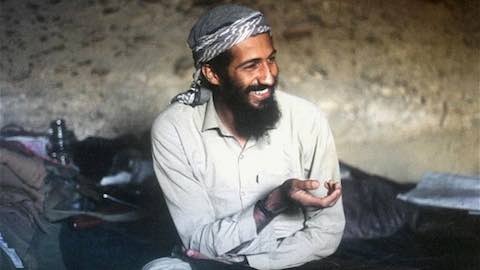- MENU
- HOME
- SEARCH
- WORLD
- MAIN
- AFRICA
- ASIA
- BALKANS
- EUROPE
- LATIN AMERICA
- MIDDLE EAST
- United Kingdom
- United States
- Argentina
- Australia
- Austria
- Benelux
- Brazil
- Canada
- China
- France
- Germany
- Greece
- Hungary
- India
- Indonesia
- Ireland
- Israel
- Italy
- Japan
- Korea
- Mexico
- New Zealand
- Pakistan
- Philippines
- Poland
- Russia
- South Africa
- Spain
- Taiwan
- Turkey
- USA
- BUSINESS
- WEALTH
- STOCKS
- TECH
- HEALTH
- LIFESTYLE
- ENTERTAINMENT
- SPORTS
- RSS
- iHaveNet.com: Middle East

Islamic Extremism Potentially Synergistic
By Russ Wellen
Given up for dead, Al Qaeda is resurgent. The Islamic State and Al Qaeda could combine and form an entity more dangerous than the sum of its parts.
We recently ran a post titled Islamic Extremism Is Nothing if Not Protean. "Whack the mole of the Islamic State and Al Qaeda will pop up," we remarked. That was based on the concept of one or the other. But what if, instead of one replacing the other, as the Islamic State seemed to do with Al Qaeda, a new organism formed which was a consolidation of the two?
In the latest Foreign Affairs counterterrorism expert Bruce Hoffman writes:
Only five years ago, al Qaeda's downfall appeared &ellips; imminent. Its founder and leader was dead. A succession of key lieutenants had been eliminated. And the region was transformed by the Arab Spring. Civil protest, it seemed, had achieved what terrorism had manifestly failed to deliver -- and Al Qaeda was the biggest loser.
In 2012, he continues, President Obama "proudly proclaimed that, 'The goal that I set -- to defeat al Qaeda and deny it a chance to rebuild -- is now within our reach.'" Hoffman's next sentence: "How completely different it all looks today." Recently:
Director of National Intelligence James R. Clapper painted a singularly bleak picture of a newly resurgent al Qaeda alongside an ambitiously expansionist Islamic State (ISIS).
Hoffman writes that "by 2021 al Qaeda and ISIS might reunite -- or at least have entered into some form of alliance or tactical cooperation." Among the reasons:
One: the ideological similarities. To wit: "an aggressive, predatory war is being waged against Islam by its enemies." This includes Western control of oul.
Two: Their differences are due less to substance than clashing ego, i.e., Zawahiri v. Baghdadi. The death of one of the other might pave the way to reconciliation.
Three: strategic similarities. The main difference is tactically, i.e., that is, the degree of brutality and indifference to citizens' lives, Muslim or not.
He quotes an unnamed U.S. intelligence analyst he finds especially credible who says that "would be an absolute and unprecedented disaster for the [U.S. government] and our allies." In other words, Hoffman writes: "Any kind of coordination of terrorist operations, much less a more formal modus vivendi, would have profound and far-reaching consequences for international security."
That's an understatement.
Article: Courtesy Foreign Policy in Focus.
"Islamic Extremism Potentially Synergistic"